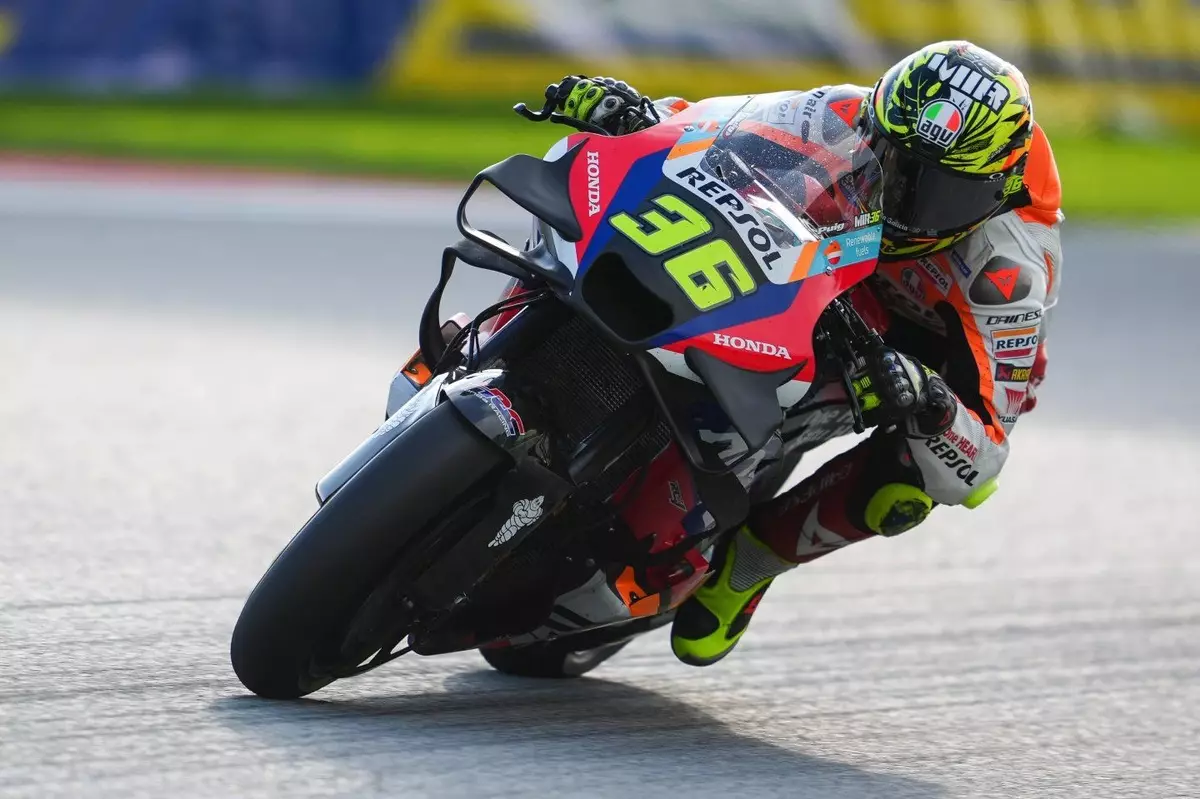In the ever-evolving landscape of MotoGP, competition is fierce, and performance is paramount. Factory HRC rider Joan Mir has been at the heart of discussions surrounding Honda’s struggles in the sport. Despite significant changes to the concession system intended to help Honda and Yamaha regain their competitive edge, the impact has been negligible. While these revisions aimed to level the playing field against European manufacturers, they have, so far, yielded disappointing results for Honda.
In previous seasons, Honda had fared poorly, leading to this revitalization effort. The 2024 concessions allowed for a broader range of engine specifications and increased testing opportunities, including private tests for Mir and teammate Luca Marini. However, Honda’s performance did not meet expectations; they finished at the bottom of the manufacturers’ standings, garnering only 75 points. This is starkly contrasted with the previous year’s count of 185 points, a season enriched by the presence of superstar Marc Marquez, who, while not a guarantee of success, provided a sense of stability.
Mir’s candid assessment of the situation raises critical questions about the utility of the concessions. He asserts that, despite being afforded these supposed advantages, the team did not make any discernible improvements in their standings. Mir’s reflections indicate that the expected benefits of concessions were not materializing. “I hope this helps us for the next one. But in the short term, we didn’t get any advantage,” he stated. This perspective suggests a broader challenge for Honda; it is not enough to merely have opportunities for development—the execution and suitability of those advancements are equally essential.
The performance of a motorcycle on the track is influenced by numerous factors, and it appears that Honda’s attempts to adapt and innovate have not translated into the speed and efficiency necessary to compete effectively. Mir’s assertion—”we have to find a way to get good pieces [on the bike] that help us to be faster”—highlights the urgent need for the manufacturer to not only develop but also effectively incorporate high-performance components in their motorcycles.
The added testing responsibilities have transformed Mir’s schedule into a rigorous marathon of races and tests. Rather than benefitting from this intensified testing, Mir expresses a concern that it has taken a toll on his psychological readiness. He argues that the benefits of testing could be compromised by the lack of adequate rest. “If the bike is better, I would be faster,” he stated, suggesting that any improvements made during testing have not yet translated to concrete performance on the race day.
As Mir alludes, the introduction of a dedicated test team is critical. Engaging a specialized team can provide focused feedback and insights without overburdening race riders. Honda’s ongoing plans to bolster its testing capabilities may alleviate some of these problems, allowing riders like Mir to concentrate solely on race performance while the test team handles technical refinements.
Looking ahead, Honda aims to address its weaknesses by reinforcing its test team with experienced riders, including three-time grand prix winner Aleix Espargaro and others. Mir believes these strategic changes combined with the newly introduced concessions can pave the way for Honda to regain its competitive stature within MotoGP. He recognizes the inadequacy of the test team’s size in the current season and supports expanding this crucial area.
Honda’s journey in MotoGP has reached a critical juncture. The implemented concessions, rather than acting as a catalyst for rejuvenation, have exposed deeper issues within the team. As Honda recalibrates its strategy, the focus must shift towards enhancing the development process and effectively integrating innovations into competitive race scenarios. The hope is that the lessons learned from this year’s challenges will allow Honda to rise from the ashes and reclaim its status as a formidable contender in future MotoGP seasons.


Leave a Reply